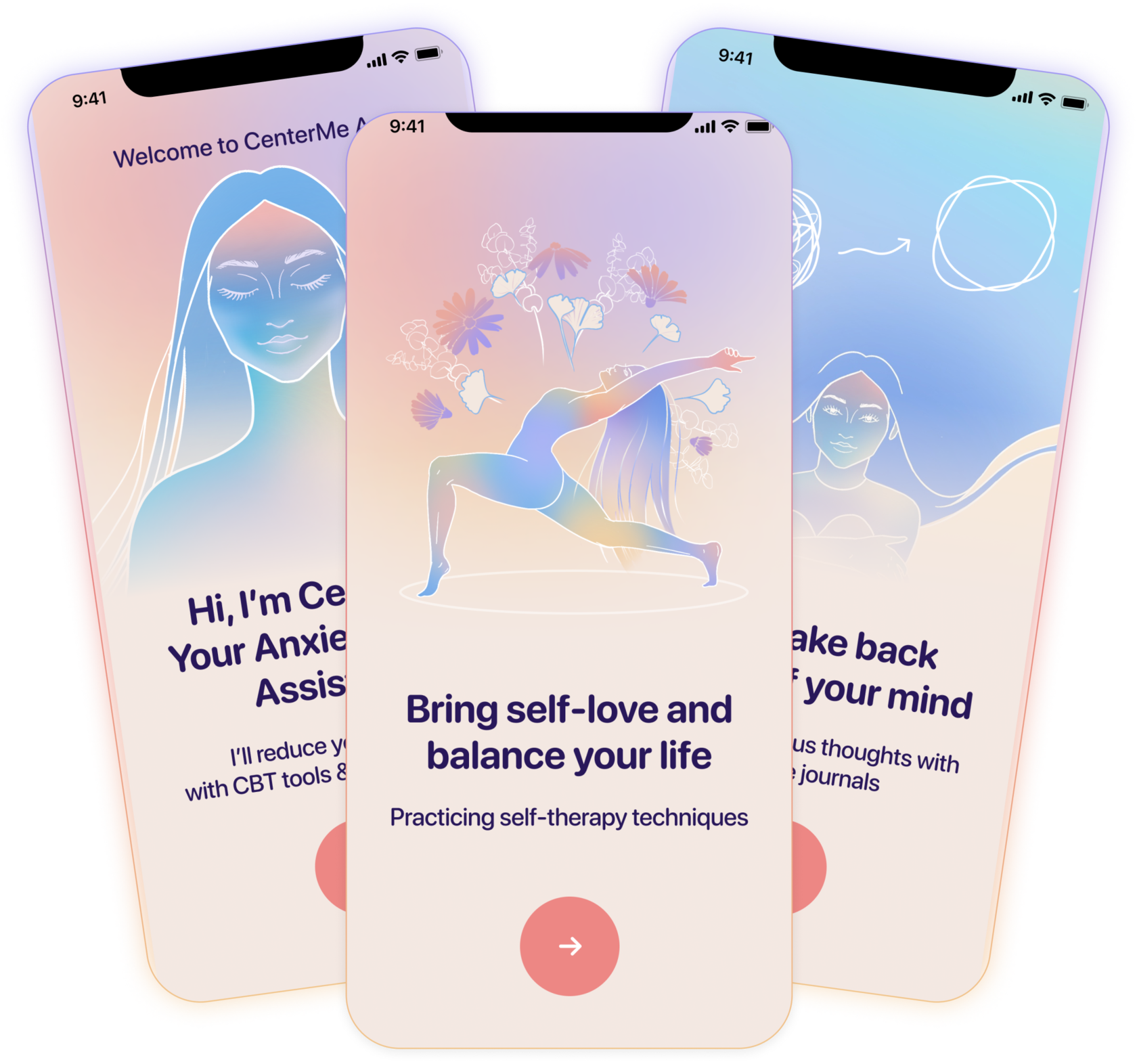Are you experiencing brain fog or difficulty concentrating? It could be due to anxiety! Researchers have identified a link between various personality traits (anxiety, suspiciousness, etc.) and thinking abilities.
How Anxiety Affects Your Cognitive Abilities: Results of 1,300 Scientific Studies
5 minutes reading
If you're thinking any of the following,
read this article:
read this article:
"I have trouble putting thoughts together"
"I have a lack of motivation and interest in the things you'd usually do"
"I can't concentrate "
"I don't remember what you were doing"
Why do you need сognitive abilities in the era of artificial intelligence?
In the time of artificial intelligence, our thinking skills are more important than ever before. With advancing technology, new tasks require logic, fast information processing, and creative problem-solving.
Moreover, with the advancement of artificial intelligence, it is becoming increasingly important to think creatively and discover unconventional solutions. Such tasks are the most difficult to automate and assign to computers.
Moreover, with the advancement of artificial intelligence, it is becoming increasingly important to think creatively and discover unconventional solutions. Such tasks are the most difficult to automate and assign to computers.

Today, your cognitive abilities affect various areas of life:
Developing our intellectual abilities is crucial in our current era of artificial intelligence. It helps us adapt to a constantly changing world and achieve success in many different fields.
- Grades impact your success in developing your career.
- They affect your ability to withstand negative effects of social media.
- They affect how fast you learn new skills and jobs, which you may need to do many times in life.
- They shape who you decide to be around and build relationships with.
- They impact how you raise your kids.
- They impact how you assess your life.
Developing our intellectual abilities is crucial in our current era of artificial intelligence. It helps us adapt to a constantly changing world and achieve success in many different fields.
How are anxiety and cognitive abilities related?
A new study was published in the journal PNAS by scientists from the University of Minnesota. They looked at how people's personalities and cognitive skills are connected. The study looked at 1,300 important scientific studies from 50 countries. It found some links between different personality traits and thinking abilities.
Research has shown that anxiety, neuroticism, and suspicion can significantly impair intellectual abilities.
People who tend to experience high levels of anxiety may experience difficulties with:
Research has shown that anxiety, neuroticism, and suspicion can significantly impair intellectual abilities.
People who tend to experience high levels of anxiety may experience difficulties with:
- Long Term Memory
- Short Term Memory
- Visualization
- Reading
- Auditory Processing
- Foreign language proficiency
- Understanding math and logic
- General science knowledge

"If your brain is a computer, ongoing anxiety and stress are those programs that run in the background and use up tons of memory and make everything else run slowly."
Based on my professional experience working with clients in the field of cognitive-behavioral therapy, I have observed that high levels of anxiety can significantly impact their working skills:
As a result, anxiety interferes with the accumulation of knowledge, becoming an expert, and thinking logically.
However, increased anxiety does not have to be a life sentence. Specialists in cognitive-behavioral therapy (CBT) can help reduce the negative effects of anxious thoughts and teach how to control them. CBT is a highly effective and scientifically proven form of psychotherapy that can improve cognitive abilities and help you develop personally and professionally.
- Fear of making mistakes slows down professional development.
- Anxious procrastination on social networks reduces productivity.
- Devaluation and self-criticism "kill" creativity.
- Avoidance and negativity ruin relationships with colleagues.
- Imposter syndrome is fed.
- Perfectionism and fear of failure "kill" the joy of work.
As a result, anxiety interferes with the accumulation of knowledge, becoming an expert, and thinking logically.
However, increased anxiety does not have to be a life sentence. Specialists in cognitive-behavioral therapy (CBT) can help reduce the negative effects of anxious thoughts and teach how to control them. CBT is a highly effective and scientifically proven form of psychotherapy that can improve cognitive abilities and help you develop personally and professionally.
This research also revealed that anxiety, along with the following personality traits, has a negative impact on intellectual abilities:
- Depression
- Poor emotional regulation, especially anger
- Suspicion
- Passivity
- Conservatism in life and ideas, that is, unwillingness to change habits or delve into new ideas.
What character traits enhance our intellectual abilities?
The study has shown that having these personality traits can help people learn and handle tasks better, both intellectual and general:
- Internal locus of control. Taking responsibility for both good and bad events instead of blaming external factors is taking ownership.
- Healthy self-esteem
- Openness to new habits and ideas
- Activity and energy
- Leadership qualities
- Empathy
- Tolerance

I suggest focusing on these skills and adding them to your 2023-2024 development plan, right after learning how to manage anxiety.
This is because fast technological progress creates many mental challenges that we need to deal with in a world overflowing with information.
This is because fast technological progress creates many mental challenges that we need to deal with in a world overflowing with information.

In the end, our cognitive abilities play a crucial role in our lives. Anxiety, suspicion, and other personality traits can have a negative impact on these abilities. However, with the help of specialists and by developing other personal qualities, we can improve our cognitive abilities and live a more fulfilling life.
- Untangling the Human Mind: The Interplay Between Cognition and Personality
https://neurosciencenews.com/cognition-personality...
- Meta-analytic relations between personality and cognitive ability
- Your Brain Fog May Be an Anxiety Symptom — Here's How to Deal with It
https://www.healthline.com/health/brain-fog-anxiet..
Learn More

#values #women #anxiety

Hi! I'm Sia Science Witch.
I believe anxiety is a gift, not a curse, and I can prove it.
I believe anxiety is a gift, not a curse, and I can prove it.
#about #mission #story

#values #planning #goal

Happy to have you on my blog!
My name is Sia Marinich and I am a certified coach and consultant in Cognitive Behavioral Therapy (CBT), as well as the CEO of CenterMe, a mental health startup.
In this blog, I focus on learning and adapting the most effective CBT tools to help women manage anxiety, stress, and their self criticism, which can hinder them from reaching their full potential.
In this blog, I focus on learning and adapting the most effective CBT tools to help women manage anxiety, stress, and their self criticism, which can hinder them from reaching their full potential.
©CenterMe Health. All rights reserved

